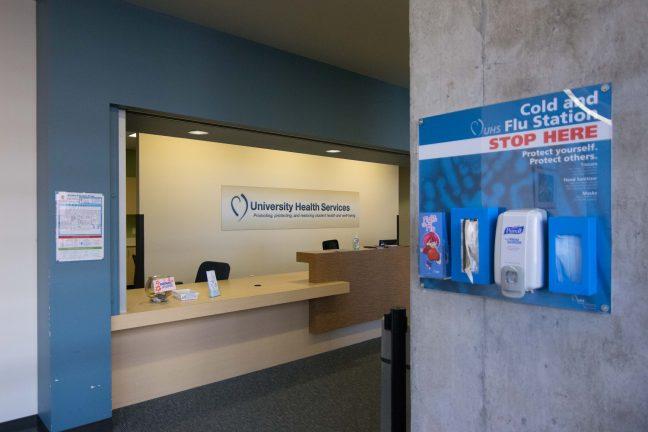Today’s healthcare clinicians use the “Clinical Decision Making” model to diagnose patients using information like age, family history or medical history. Race is normally ignored in this model, but University of Wisconsin health economist John Mullahy recently found a patient’s race may be essential for determining medical assessments and treatments.
University of Pennsylvania professor Dr. Atheendar Venkataramani and Northwestern University health economist Charles Manski co-authored a paper with Mullahy that yielded a new race-conscious framework to allow clinicians to more effectively treat patients and predict their care.
For doctors to give the best care and treatment, they need to consider as much information as possible, Mullahy said. According to Mullahy’s study, a person’s race can predict patient information like access to medical care, environment and health risks.
“Race has some ability to predict something about a patient’s likely outcome,” Mullahy said.
Dr. Sarah Buckley practices family medicine in the Twin Cities, Minnesota. Through her work, Buckley said she has seen the importance of racial consideration in treating patients.
Wisconsin Science Festival partners with Madison Night Market for ‘Science on the Square’
Different health concerns can be associated with racial or ethnic groups, Buckley said. For instance, Hispanics, African Americans and Native Americans can have a higher risk of diabetes and heart failure than other ethnicities and races — which informs clinicians’ decision-making processes when treating patients from their respective racial groups. Kidney disease, cancer and cardiac kidney disease are also shown to be higher in African Americans in comparison to other races.
According to Buckley and Mullahy, considering the possible risks for people of these racial and ethnic groups is helpful for clinicians when deciding what cancer screenings or tests to perform for the patient.
“A patient’s possible health care can come from factors including race, which is incredibly important to preventative care of a patient,” Buckley said.
Buckley said race is also vital for specific medical examinations like cancer screenings, which means racial differences in health risks must inform how doctors select the appropriate medical tests.
A medication’s effectiveness can vary by race as well. For example, heart disease treatment effectiveness can differ between different racial groups and information on treatments should be used by doctors, Buckley said.
‘Breaking the Bias Habit’ workshops for UW STEM faculty to resume in 2024
Mullahy and Buckley said a person’s race could also suggest their environment and the circumstances of their upbringing. For example, Mullahy said that a person’s environment could indicate the level of exposure patients have had to risk factors such as harmful substances or toxins.
When doctors consider a patient’s environment, they can synthesize their medical history and potential risk factors to more effectively treat them, Mullahy said.
Many people are concerned with how to define race because race is a social construct and not biological. According to Mullahy, his model does not require race to have a specific definition. Instead, it represents a set of theoretical risks clinicians can predict to ensure effective treatments.
“[Race] doesn’t have to be a perfect measure of anything … As long as that measure you have predicts something about the patient’s likely health outcomes, you should use it,” Mullahy said.
Self-identification, which involves patients describing their race and history on intake forms at the doctor’s office, is the best way for health professionals to consider race in in-patient treatment, Buckley said. This way, a clinician can understand how race might be relevant to the patient’s treatment.
Former National Geographic environment editor, CALS Distinguished Alumni awardee visits UW
Structural racism and bias have been and continue to be prevalent and observed in the healthcare system in the United States, according to data from the Centers for Disease Control. A well-known example of this is disparities in prenatal and maternal care between white and Black women — originating from the incorrect belief Black women had a higher pain tolerance for childbirth than white women, according to the National Library of Medicine.
This incorrect belief led to higher mortality rates among African American women and their babies during childbirth, Buckley said. Clinicians should always offer pain management medication when a laboring woman is in pain — no matter the circumstance. Using a race-conscious model would help prevent this disparity from continuing.
According to Buckley and Mullahy, a lack of bias training exacerbates racism in healthcare. While Mullahy advocates for racial consideration in his clinical decision-making model, he is cautious of bias. Bias can interfere with the clinician’s goals to maximize patient care and undermine the benefits of incorporating race into assessment and treatment methods, Mullahy said.
“When looking at these studies, doctors should understand if this fact [pain tolerance in laboring women] is based on calculations or implicit biases,” Buckley said.
Buckley said bias training in all health professionals may help solve the widespread problem of racial bias in healthcare and remedy racial disparities.


















